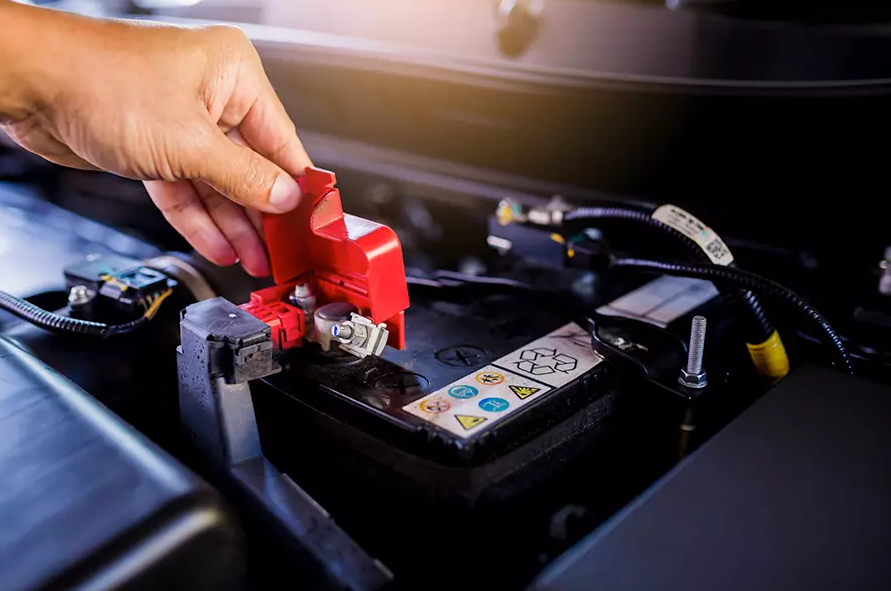Advancements in Medical Equipment Powered by Lithium Batteries
In recent years, there have been significant advancements in medical equipment powered by lithium batteries. These advancements have revolutionized the healthcare industry, enabling medical practitioners to provide better patient care and improve overall treatment outcomes. From portable devices to implantable technologies, lithium batteries have become the power source of choice due to their efficiency, reliability, and long-lasting performance.
One of the most notable advancements in medical equipment powered by lithium batteries is the development of portable medical devices. These devices, such as portable ultrasound machines, handheld ECG monitors, and portable oxygen concentrators, have transformed the way healthcare is delivered. Lithium batteries provide these devices with the necessary power to operate efficiently while remaining lightweight and compact. This portability allows medical professionals to bring essential equipment directly to the patient’s bedside, improving convenience and reducing the need for unnecessary transfers.
Implantable medical devices, such as pacemakers and neurostimulators, have also greatly benefited from advancements in lithium battery technology. Lithium batteries offer a high-energy density, allowing these devices to operate for extended periods without the need for frequent battery replacements. This not only enhances patient comfort but also reduces the risk of complications associated with surgical procedures to replace batteries. Furthermore, the reliability of lithium batteries ensures a consistent power supply, critical for the optimal functioning of these implantable devices.
Another area where lithium batteries have made significant advancements is in the field of remote patient monitoring. With the increasing popularity of telemedicine, healthcare providers can remotely monitor patients’ vital signs and health conditions through wearable devices. These devices, such as smartwatches and fitness trackers, rely on lithium batteries for their power needs. Lithium batteries enable these devices to continuously monitor and transmit data without compromising on battery life or performance. This remote patient monitoring allows for early detection of potential health issues, prompt intervention, and ultimately, improved patient outcomes.
Lithium batteries have played a crucial role in the development of advanced imaging technologies in healthcare. Medical imaging devices, such as magnetic resonance imaging (MRI) machines and computed tomography (CT) scanners, require a significant amount of power to generate high-resolution images. Lithium batteries, with their high energy density and reliable performance, meet this power demand, ensuring uninterrupted and accurate imaging procedures. The use of lithium batteries in these devices has not only improved image quality but also increased patient throughput, reducing waiting times and improving overall efficiency in healthcare facilities.

Despite the numerous benefits lithium batteries offer to medical equipment, there are also challenges associated with their use. One significant concern is the risk of thermal runaway and battery fires. Lithium batteries are prone to overheating and, in rare cases, can catch fire or explode. To mitigate these risks, extensive research and development efforts are being made to enhance the safety features of lithium batteries and improve their overall reliability.
Advancements in medical equipment powered by lithium batteries have revolutionized the healthcare industry. From portable devices to implantable technologies, lithium batteries have enabled medical practitioners to provide better patient care and improve treatment outcomes. The portability, reliability, and long-lasting performance of lithium batteries have transformed the way healthcare is delivered, allowing for greater convenience, enhanced patient comfort, and improved efficiency in healthcare facilities. However, continuous research and development efforts are necessary to address safety concerns and further improve the performance and reliability of lithium batteries in medical equipment.
-
 RV batteries play a crucial role in providing power to various electrical systems and appliances in recreational vehicles. Whether you are a seasoned RV enthusiast or a beginner, it is important to have a good understanding of RV batteries and how they work. In this article, we will explore the basics of an RV battery, including types, maintenance, and charging....Read more
RV batteries play a crucial role in providing power to various electrical systems and appliances in recreational vehicles. Whether you are a seasoned RV enthusiast or a beginner, it is important to have a good understanding of RV batteries and how they work. In this article, we will explore the basics of an RV battery, including types, maintenance, and charging....Read more -
 LiFePO4 rechargeable batteries have been growing in popularity for a variety of applications, particularly in electronic devices and transportation. Understanding the lifespan and performance of LiFePO4 batteries is crucial for making an informed decision on whether they are the right choice for your needs. LiFePO4 batteries have a longer lifespan compared to other rechargeable batteries, such as lithium-ion batteries,...Read more
LiFePO4 rechargeable batteries have been growing in popularity for a variety of applications, particularly in electronic devices and transportation. Understanding the lifespan and performance of LiFePO4 batteries is crucial for making an informed decision on whether they are the right choice for your needs. LiFePO4 batteries have a longer lifespan compared to other rechargeable batteries, such as lithium-ion batteries,...Read more -
 In recent years, there has been a significant shift towards electric forklifts as businesses recognize the numerous advantages they offer. One crucial component that contributes to the success of electric forklifts is the lithium battery. This article will explore the advantages of using an electric forklift lithium battery, highlighting the reasons why it has become the preferred choice for many...Read more
In recent years, there has been a significant shift towards electric forklifts as businesses recognize the numerous advantages they offer. One crucial component that contributes to the success of electric forklifts is the lithium battery. This article will explore the advantages of using an electric forklift lithium battery, highlighting the reasons why it has become the preferred choice for many...Read more -
 When it comes to marine vessels, having a reliable starting battery is essential for smooth operations. Whether you have a small boat or a large yacht, investing in a high-quality marine starting battery can make all the difference in ensuring a seamless and enjoyable experience on the water. A marine starting battery is specifically designed to provide a burst...Read more
When it comes to marine vessels, having a reliable starting battery is essential for smooth operations. Whether you have a small boat or a large yacht, investing in a high-quality marine starting battery can make all the difference in ensuring a seamless and enjoyable experience on the water. A marine starting battery is specifically designed to provide a burst...Read more -
 In modern society, portable electronic products have become an indispensable part of our lives. Lithium batteries, as the core power source of these devices, have brought great convenience to our lives because of their lightness and efficiency. Whether it is a smartphone, tablet or wearable device, lithium batteries provide us with a longer and more reliable use experience with their...Read more
In modern society, portable electronic products have become an indispensable part of our lives. Lithium batteries, as the core power source of these devices, have brought great convenience to our lives because of their lightness and efficiency. Whether it is a smartphone, tablet or wearable device, lithium batteries provide us with a longer and more reliable use experience with their...Read more -
 When it comes to owning a car, one of the most important things you need to consider is the battery. This is because it is responsible for starting the engine and powering all the electrical systems in your vehicle. Therefore, it is essential to choose a reliable car starter battery that can meet your needs. In this article, we...Read more
When it comes to owning a car, one of the most important things you need to consider is the battery. This is because it is responsible for starting the engine and powering all the electrical systems in your vehicle. Therefore, it is essential to choose a reliable car starter battery that can meet your needs. In this article, we...Read more -
 U series suppliers play a crucial role in the automotive industry, providing essential components and materials that are necessary for the manufacturing of vehicles. These suppliers produce a wide range of parts, from electronic control modules to brake systems, engines, and transmission systems. Their products are used by car manufacturers worldwide, making them an essential part of the supply chain....Read more
U series suppliers play a crucial role in the automotive industry, providing essential components and materials that are necessary for the manufacturing of vehicles. These suppliers produce a wide range of parts, from electronic control modules to brake systems, engines, and transmission systems. Their products are used by car manufacturers worldwide, making them an essential part of the supply chain....Read more

